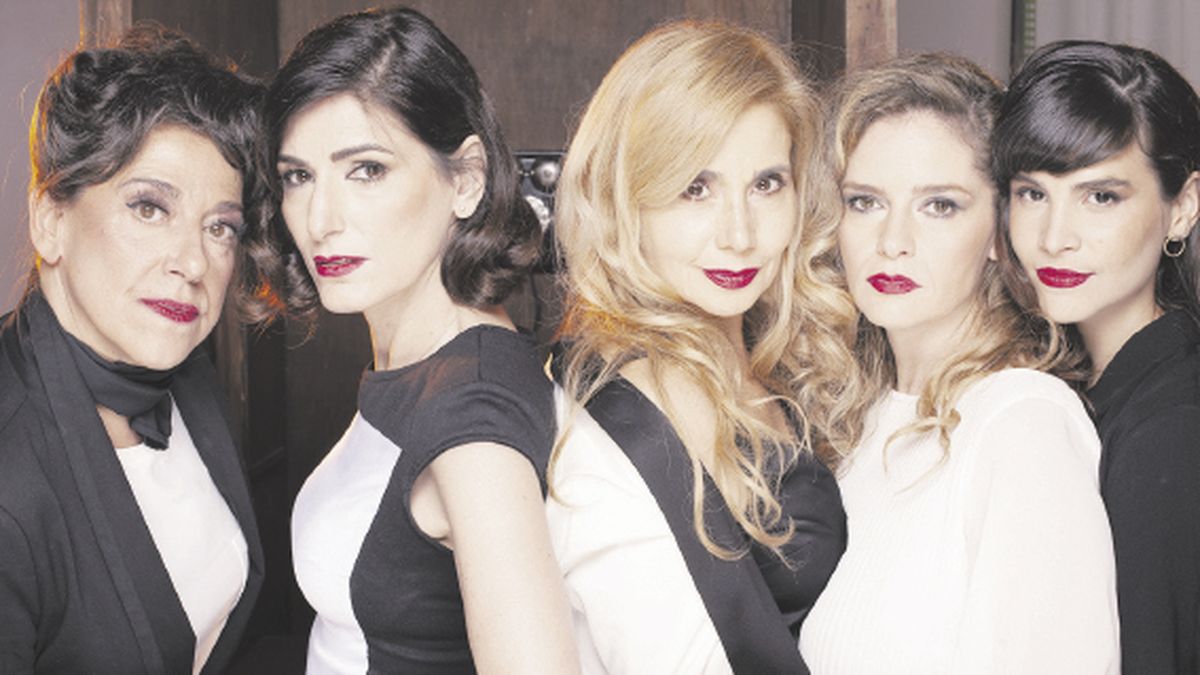“This work had to be told by women because the 20th century was that of women,” says Julia Calvo who stars in “Porteñas”, a renowned work by Manuel González Gil and Daniel Botti that was presented 25 years ago with Daniel Fanego, Gabriel Goity , Horacio Fontova, Gastón Pauls and Osvaldo Santoro, and five years later, in the female version, Betiana Blum, Virginia Lago, Carolina Peleriti, Susú Pecoraro and María Valenzuela premiered. It is the version that returned this week, also with Cecilia Milone, Andrea Politti, Romina Richi and Micaela Riera at the Astral theater and revives events from the different decades of the 20th century. We dialogue with Calvo.
Journalist: What milestones of the last century does the work highlight?
Julia Calvo: We start with 1909, in the midst of the modern era, with new developments, advances and certain mobilizations in the street, such as May 1 in Plaza Lorea. There is a kind of calm presentation of the different characters in mine’s house, which brings them together. Then we move on to 1920, where this desire to have more participation by women begins, symbolic elections are held in front of Congress and it is expressed that women want to vote. The differences between these five characters and the thoughts of each one are strengthened there. Then we go to 1930, we come from the cinema, Gardel dies; then in ’50 the vote was actually reached; In the ’60s, one of the characters, the feminist, falls in love, gets married, and these contradictions emerge between her feminism and the realization that she is a woman. Then the ’70s, the disappearances and in the ’80s we revived the return to democracy.
Q: What changes would you mark between the last century and this one?
JC: The last century is that of isms, it is the century of women. Manuel González Gil was precisely saying that he premiered “Porteños” and Tana Rinaldi had told him that the work had to be told by women, that in addition to taking the themes of that work, he now has this other vision from the female side. At this time we are still in a transition period, welcome, but there were no drastic changes.
Q: What can you say about the choir and the differences between characters?
JC: I joined later and I only rehearsed for a month, with a beautiful character, she is the owner of the house, the hostess, who brings together these five cradles and ideologies. We are different and the interesting thing is how we can coexist, expand, listen to each other, it is an example for society. We can share, debate, think together and that is what the story tells, the most important thing is respect when listening to each other. Each one has its reasons for thinking and opens the possibility of changing. Nobody is born with an idea but rather it appears, strengthens, deepens and discovers others that make us question them. My character has an arc that starts in one way and ends not differently but transformed. That is the wonder of the characters, if they transform during the play they are telling something and perhaps they transform the audience.
Q: How did you build your character?
JC: It reminds me of my house, where people were received, my mother was a professor of Philosophy and Letters, there was a lot of talk, debate, and although it was not a militant family, it received students, friends with different ideas. That helped me build this neutrality for a character that is very marked by her family, her lineage, and the activity of her husband. She however she opens her house and gathers. The differences appear as the decades progress, and depending on what happens historically, one character or another emerges more strongly.
Q.: Why do so many works already seen in the past return?
JC: They were hits at that time, I saw them myself, it’s not that they were needed but that they became classics and give a security, a poise in what is said to be very good. As long as new works continue to appear, I do not deny but I am in love with the classics, the new generations deserve to see them and for them to resonate differently today. It is the wonder of the classic.
Q: What can you say about theater today?
JC: Hopefully this management will benefit us, theater is culture and culture is fundamental for society. I still think that our theatrical and cultural movement is wonderful, I spent five months in Montevideo and I see the contrast more. People from outside consume it, they come to see theater.
Source: Ambito
I am an author and journalist who has worked in the entertainment industry for over a decade. I currently work as a news editor at a major news website, and my focus is on covering the latest trends in entertainment. I also write occasional pieces for other outlets, and have authored two books about the entertainment industry.




